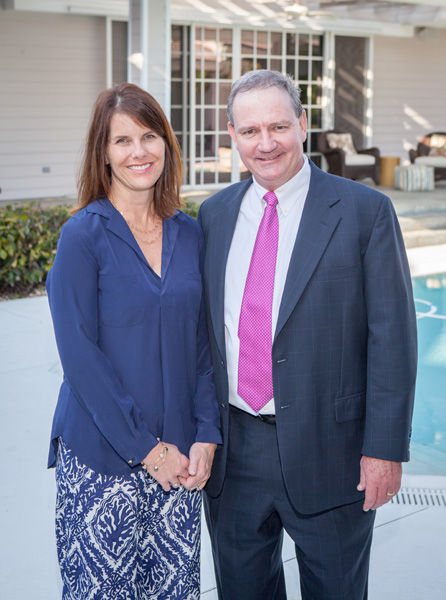The board members and supporters of the Substance Awareness Center of Indian River County who gathered at the lovely riverfront home of Tom and Linda Nelson last Tuesday evening were given some particularly welcome news.
“Indian River County has seen statistically significant drops in the use of alcohol, cigarettes and drugs at the middle school level,” said Robin Dapp, SAC executive director.
The organization instituted a high-fidelity LifeSkills Training (LST) program in Indian River County middle schools at the start of the 2011-12 school year and the results have been enormously encouraging. The program, taught by four trained health educators at Oslo, Gifford, Storm Grove and Sebastian River middle schools, features 15 weeks of training at the 6th grade level, with boosters of 10 weeks in 7th grade and five weeks in 8th. The curriculum is also provided one day a week at A.C.E. (Alternative Center for Education), Imagine, Sebastian Charter and St. Helen’s, for a total of 4,100 students.
“The first cohort of 6th graders is now in 9th grade and we hope to now see a decrease in the high school level,” Dapp added.
According to the Department of Children and Families, which conducts a Florida Youth Substance Abuse Survey (FYSAS) every two years, lifetime alcohol use by middle school students in Indian River County decreased from 38 to 22 percent between 2010 and 2014. Cigarette usage decreased from 20.3 to 10 percent, marijuana from 11.5 to 8.4 percent, and prescription drugs from 5.4 to 1.9 percent. The next survey will be conducted in March 2016, with results due that November.
“It not only tells them what not to do, but what to do in life. It’s an evidence-based program; researched and proven to be effective,” said SAC board chair Bernadette Emerick. “It’s not just drugs, alcohol and tobacco advice.”
LST also incorporates aspects such as self-image, decision making, conflict resolution, coping with anger, violence and anxiety, and developing social and communication skills. It has been proven effective at reducing bullying, including cyber-bullying, delinquency, teenage pregnancy and other negative behaviors.
The Substance Awareness Center has two primary initiatives. Prevention Works seeks to combat substance abuse at an early age through LST, and Recovery Works offers counseling and transitional housing to adults. They also provide alcohol and drug testing for businesses, schools and government employees.
“It’s doing such good work,” said Emerick of the organization’s various programs. “There’s such a need in the community. It’s a broad spectrum from prevention to recovery. But, like a lot of nonprofits, a lot of people haven’t heard of it.”
The SAC also operates two sober transitional living facilities for women, purchased through grants from the Walter and Lalita Janke Charitable Foundation and the Indian River Community Foundation, giving women the tools needed for recovery in a safe, stress-free environment.
SAC programs are funded through state grant money plus a very small amount from the county, and are supplemented by local funding groups and private donations. The continuation of a state grant to fund the LifeSkills Training program has been applied for, but will not be certain until after the next school year begins.
“The most worrisome piece for me is funding for this program,” said Dapp. “We go on faith. It’s critical to receive community support because we work on a very tight margin. We’re working hard for this community.”

